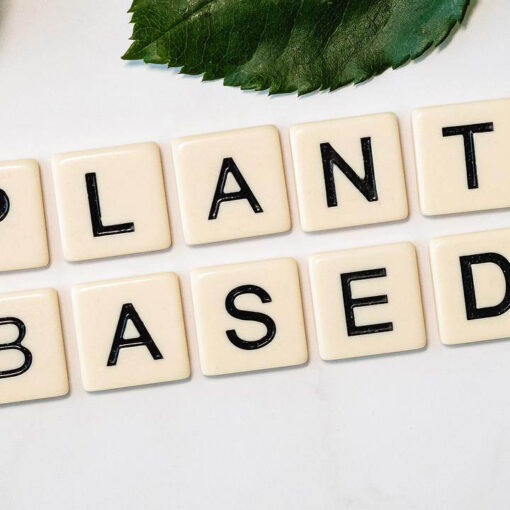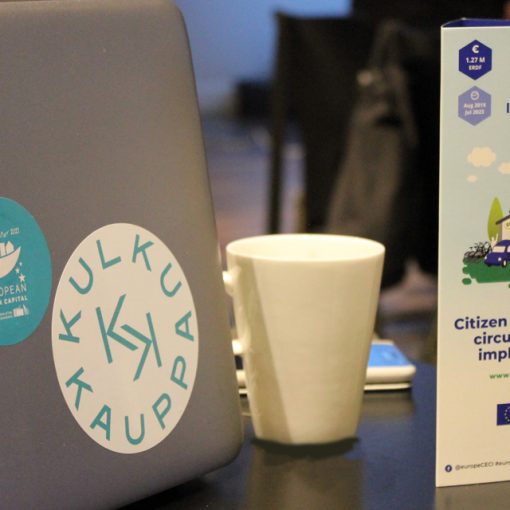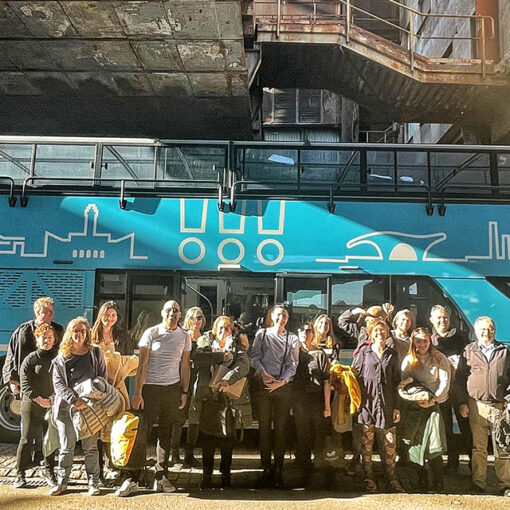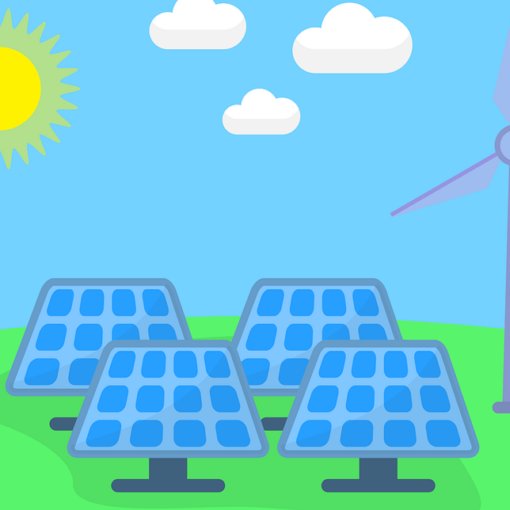Industry is among the key energy consumers as energy is essential for its operations. In 2021, industry’s share in the EU’s final energy consumption was 25,6 %, being the third largest consumer (Eurostat 2023a.) Whereas in Finland, the industry accounted for 45,3 % in 2021 and 44.8 % in 2022 of the final energy consumption, being the largest consumer (Statistics Finland 2023).
Most of the EU energy is produced from fossil-based and non-renewable sources. Renewables and biofuels accounted for less than one tenth of the total industry energy mix. (Eurostat 2023b.)
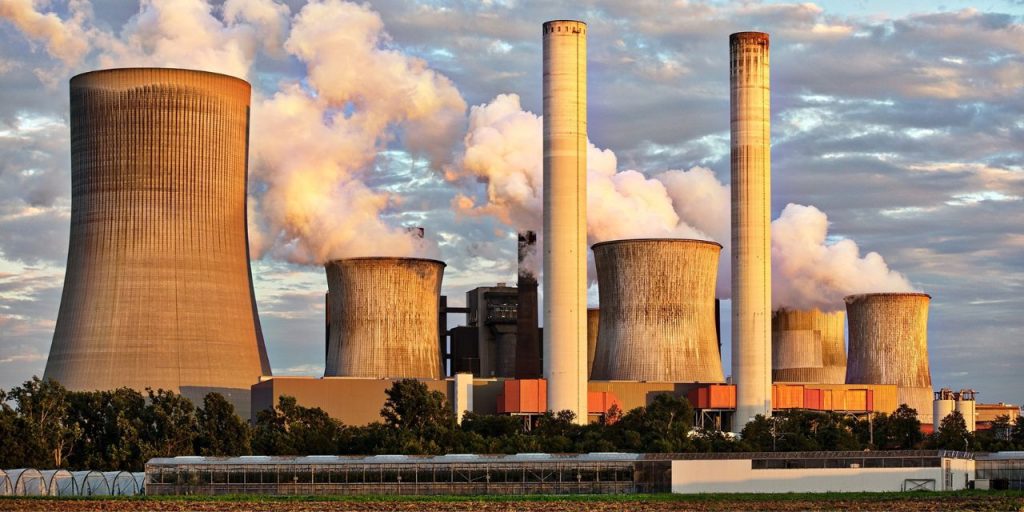
In March 2023, the provisional agreement of the EU’s Renewable Energy Directive was reached. New measures and sectoral targets were incorporated to accelerate the deployment of renewables under the ‘Fit for 55’ package, to deliver on the EU Green Deal. For the first time, the industry sector was included with indicative targets of 1.6 % of annual increase in renewables uptake. In addition, there is a binding target of 42 % share of renewable hydrogen in total hydrogen consumption in industry by 2030. (European Commission 2023.)
Interregional Cooperation & Knowledge Exchange
The RESINDUSTRY – Policies for Renewable Energy Sources in industry -project aimed to boost the renewables use in the industrial settings by knowledge and good practices exchange. As a result of increased capacity, the project aimed to develop better regional policies to support low-carbon economy. (Interreg Europe 2023.)
The good practices (GP) identified by project partners had inspired the partnership, and even beyond, in similar actions, set into the actions plans designed in all project regions. For instance, the GPs from the Päijät-Häme region, Finland encouraged especially the Spanish and Polish partners as a base for their action plans.
The interest of the Marshal Office of the Świętokrzyskie Voivodeship, Poland, lay in biomass utilization for steam and heating production, primarily from the agrifood sector. For their action plan, two Finnish GPs provided an inspiration: (1) Biomass Heating Production from Food Industry Waste (Karl Fazer Oy) and (2) Biomass boiler for efficient malt making process (Viking Malt Oy). As Lahti Energia, local energy company, oversaw building of both plants, they were invited by the Polish partner to an Expert Mission; an intensive exchange of knowledge and learning. (Luukkanen & Medkova 2022.) Link to GP Fazer and Link to GP Viking Malt.
AGENEX, Spain, was interested in using biowaste for biogas production. They were especially interested in two Finnish GPs: (1) Utilization of biowaste streams – bio-based industrial symbiosis as RES (LABIO Ltd) and (2) Biofuel production from food industry residues (ST1 & Hartwall) (AGENEX 2022, 10). For the former GP, an Expert Mission in Lahti was conducted to understand the process and get in-depth insights (Torres Fernández de Sori 2022). Link to GP LABIO and Link to GP ST1 & Hartwall.
On the other hand, GPs from the Czech Republic and Spain inspired the Päijät-Häme regional action plan. The MALFINI GP was visited as a part of the Finnish Expert Mission to learn about energy storage technology and control integration (Medkova 2022). Link to GP MALFINI.
Also, LA LAPA’S Mini plant biogas station GP from Spain inspired the design of similar small-scale equipment in Päijät-Häme. Link to GP LA LAPA.
Author
Katerina Medkova works as an RDI specialist at LAB University of Applied Sciences and acts as a Project & Communication Manager in the RESINDUSTRY project. The RESINDUSTRY – Policies for Renewable Energy Sources in industry -project is co-funded by the Interreg Europe. The partnership consisted of seven partners from the Czech Republic, Finland, Spain, Estonia, Poland, Austria, and Malta. The four-year project ended in July 2023.
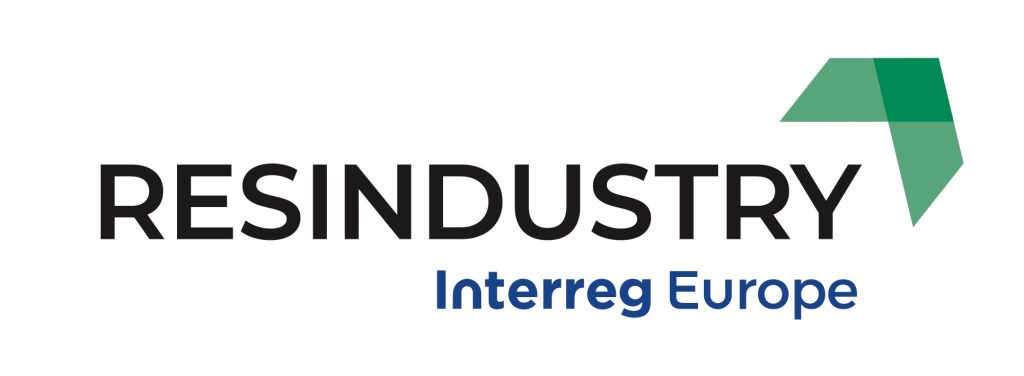
References
AGENEX. 2022. Action Plan. RESINDUSTRY. Interreg Europe. Cited 13 Jul 2023. Available at https://projects2014-2020.interregeurope.eu/resindustry/library/#folder=3387
European Commission. 2023. European Green Deal: EU agrees stronger legislation to accelerate the rollout of renewable energy. Press Release. 30 Mar 2023. Cited 13 Jul 2023. Available at https://ec.europa.eu/commission/presscorner/detail/en/IP_23_2061
Eurostat. 2023a. Final energy consumption in industry – detailed statistics. Cited 13 Jul 2023. Available at https://ec.europa.eu/eurostat/statistics-explained/index.php?title=Final_energy_consumption_in_industry_-_detailed_statistics
Eurostat. 2023b. Industry relied mostly on natural gas & electricity. Cited 13 Jul 2023. Available at https://ec.europa.eu/eurostat/web/products-eurostat-news/w/DDN-20230512-1
Interreg Europe. 2023. Project Summary. RESINDUSTRY. Cited 13 Jul 2023. Available at https://projects2014-2020.interregeurope.eu/resindustry/
Luukkanen, S. & Medkova, K. 2022. Finnish and Polish experts exchanging knowledge on renewable energy. LAB Focus. Cited 14 Jul 2023. Available at https://blogit.lab.fi/labfocus/en/finnish-and-polish-experts-exchanging-knowledge-on-renewable-energy/
Medkova, K. 2022. Expert Mission on Decentralized Renewable Energy Solution. LAB Focus. Cited 13 Jul 2023. Available at https://blogit.lab.fi/labfocus/en/expert-mission-on-decentralized-renewable-energy-solution/
Pixabay. 2016. air-pollution-chimney-clouds. Pexels. Cited 14 Jul 2023. Available at https://www.pexels.com/photo/air-air-pollution-chimney-clouds-459728/
Statistics Finland. 2023. 12vk — Final energy consumption by sector, 1970-2022*. Cited 13 Jul 2023. Available at https://pxdata.stat.fi/PxWeb/pxweb/en/StatFin/StatFin__ehk/statfin_ehk_pxt_12vk.px/table/tableViewLayout1/
Torres Fernández de Sori, J. 2022. Extremadura´s expert mission. RESINDUSTRY. Interreg Europe. Cited 13 Jul 2023. Available at https://projects2014-2020.interregeurope.eu/resindustry/news/news-article/14742/extremadura-s-expert-mission/
Links
Link 1. Interreg Europe. 2020a. Biomass Heating Production from Food Industry Waste. RESINDUSTRY. Cited 14 Jul 2023. Available at https://www.interregeurope.eu/good-practices/biomass-heating-production-from-food-industry-waste
Link 2. Interreg Europe. 2021a. Biomass boiler for efficient malt making process. RESINDUSTRY. Cited 14 Jul 2023. Available at https://www.interregeurope.eu/good-practices/biomass-boiler-for-efficient-malt-making-process
Link 3. Interreg Europe. 2020b. Utilization of biowaste streams – bio-based industrial symbiosis as RES. RESINDUSTRY. Cited 14 Jul 2023. Available at https://www.interregeurope.eu/good-practices/utilization-of-biowaste-streams-bio-based-industrial-symbiosis-as-res
Link 4. Interreg Europe. 2021b. Biofuel production from food industry residues. RESINDUSTRY. Cited 14 Jul 2023. Available at https://www.interregeurope.eu/good-practices/biofuel-production-from-food-industry-residues
Link 5. Interreg Europe. 2020c. Good practice: MALFINI – hybrid photovoltaic system with accumulation in batteries. RESINDUSTRY. Cited 13 Jul 2023. Available at https://www.interregeurope.eu/good-practices/malfini-hybrid-photovoltaic-system-with-accumulation-in-batteries
Link 6. Interreg Europe. 2020d. Biomass Heating Production from Food Industry Waste. RESINDUSTRY. Cited 14 Jul 2023. Available at https://projects2014-2020.interregeurope.eu/policylearning/good-practices/item/4694/la-lapa-s-mini-plant-biogas-station/
Link 7. Interreg Europe. 2023. Project Summary. RESINDUSTRY. Cited 7 Aug 2023. Available at https://projects2014-2020.interregeurope.eu/resindustry/

